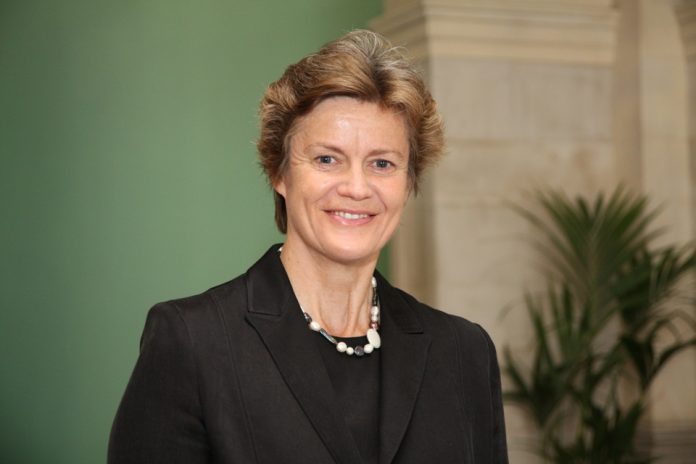Thank you, Mr. President, I would like to thank the Special Envoy for her briefing today, and also pay tribute to the powerful statement of my colleague the Permanent Representative of Myanmar.
The United Kingdom condemns the military coup in Myanmar and the arbitrary detention of members of the democratically elected civilian government, including State Counsellor Aung San Suu Kyi and President Win Myint, and civil society. We call for all those arbitrarily detained to be immediately and unconditionally released. We need assurances of their safety and wellbeing.
We stand with the people of Myanmar who are now bravely exercising their democratic right to protest this coup. Their wishes, and the result of the November 2020 General Election, must be respected.
The situation in Myanmar continues to deteriorate: peaceful protests are suppressed, peaceful exercise of freedoms inhibited by restrictions. Three protestors have died. We call on the military and the police to exercise utmost restraint and respect human rights and international law. Firing live ammunition on unarmed protesters is reprehensible and must stop.
Three weeks have passed since Security Council members issued a robust, unified statement. Today’s General Assembly discussion reflects the grave concern of the whole international community for the people of Myanmar and the country’s peaceful and democratic future.
Mr President, I wish to make three points:
First, the international community, and the UN, has a vital role to play. We express our strong support for the continued efforts of the Special Envoy on Myanmar to secure a peaceful return of Myanmar to its path towards democracy. We call on the military authorities urgently to allow the Special Envoy to visit Myanmar to assess the situation first hand. Regional partners in particular have a critical role to play, and it is important that the UN engages with the Association of Southeast Asian Nations (ASEAN), and others, in progressing any solution. We welcome the ASEAN Chair’s Statement of 1 February, and ASEAN’s ongoing efforts.
Second, the military should face the consequences of their actions. As such, the UK has sanctioned 19 individuals in the upper echelons of the Tatmadaw, each responsible for serious human rights violations. We urge others to urgently explore the possibility of sanctions to deter further atrocities and encourage the reinstatement of democracy. The UK has conducted a review of our aid to Myanmar, to ensure that money does not support the military. We are also encouraging UK businesses to ensure that they are not engaging with military owned entities. We encourage others to do the same.
Third, it is vital that we do not forget the most vulnerable in Myanmar. Hundreds of thousands of Rohingya and other minorities continue to suffer, as they remain confined to their villages and IDP camps across the country. Notwithstanding the deterioration of the security situation in Myanmar since the coup, the international community and the UN should continue to encourage Myanmar to work towards creating conducive conditions for the voluntary, safe, dignified and sustainable return of Rohingya refugees from Bangladesh, in consultation with them. Additionally, displaced and vulnerable communities in Myanmar, including the Rohingya, as well as vulnerable host communities, should continue to receive humanitarian assistance. In this context, humanitarian agencies should have free and unhindered access to these communities.
I would like to conclude by reading an extract of a letter from the Committee Representing Pyidaungsu Hluttaw, which represents the views of 380 democratically elected MPs. It reads, “Now is not the time for the international community to tolerate the actions committed by the military. We urge the United Nations and international community to support Myanmar’s democracy and its people.”
I thank the Special Envoy again for her excellent briefing and continued hard work.
Thank you Mr. President.







